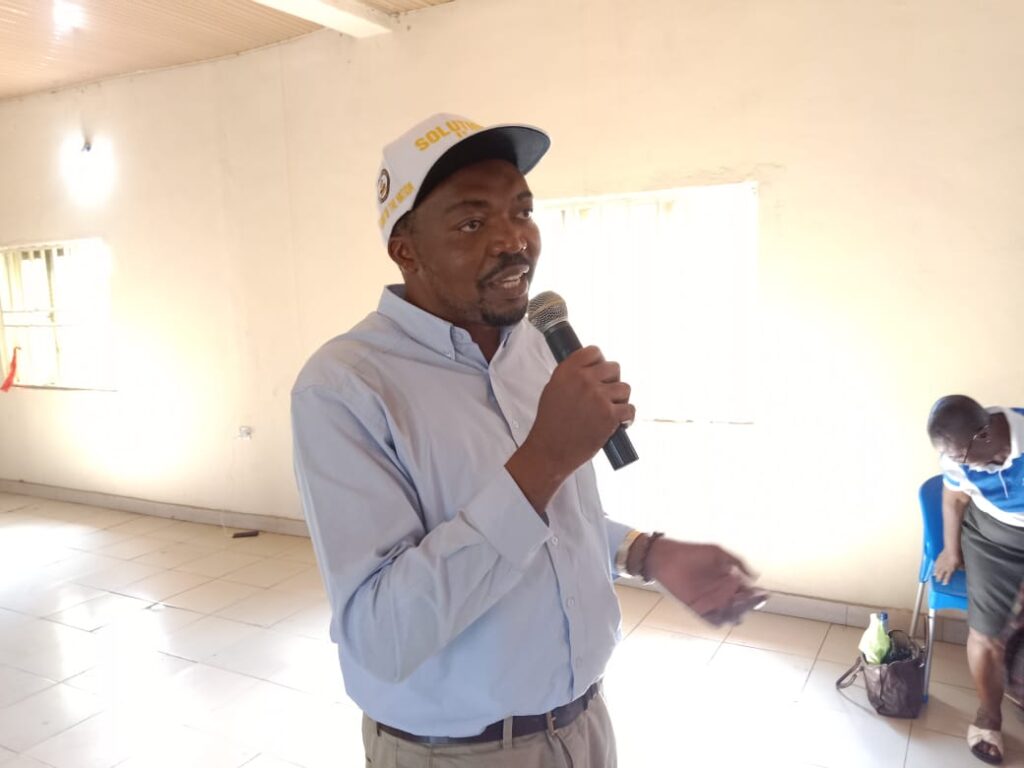Lawrence Nwimo, Awka
No fewer than 5,700 residents have reportedly been diagnosed with tuberculosis within the first two quarters of 2024 in Anambra State.
Tuberculosis, commonly known as TB, is a bacterial infection that primarily affects the lungs and other parts of the body. It is spread through the air when an infected person coughs or sneezes.
Programme Manager, Anambra State TB, Leprosy & Brully Ulcer Control Programme, Dr Ugochukwu Chukwulobelu, disclosed this during a one day capacity building workshop for Civil Society Organisations (CSOs) and the Media on Tuberculosis Intervention in the state.
Represented by the Monitoring & Evaluation Officer, Mrs Chiamaka Oguejiofor, the manager described TB as one of the significant public health challenges the state was facing.
He said, “There is an estimated prevalence rate of 323 per 100,000 people. TB incident rate is approximately 219 per 100,000 people annually. 3200 cases of TB was diagnosed In the first quarter of January to March 2024 while 2500 TB cases was diagnosed between April and June 2024.”
“Tuberculosis spreads easily where people gather in crowds or where people live in crowded places or rooms without ventilation. There are persons infected who have no symptoms of TB (Latent TB infection) and anybody can easily be infected without knowing. Nobody knows who will be the next to be infected in schools, churches, bus, keke or market place.
“The risk factors for infection include exposure to an untreated case, Susceptibility to infection, Weakening immunity due to HIV/AIDS infection, Diabetes mellitus, Prolonged intake of steroids and use of anti cancer drugs, Chronic alcoholism, Malnutrition in the case of children.
“Symptoms of TB include Fever, Cough (about 2 weeks or more), Shortness/Difficult breathing, Tiredness, Coughing out blood, Chest pain, Night sweats, loss of appetite, Weight loss. TB can be Drug Susceptible (DSTB) or Drug Resistant (DRTB).
“Both are curable within 6 months of full dosage and regular intake of TB drugs but the suspected case needs to undergo proper TB test to determine wether it is DSTB or DRTB.
“Although in 2023, Anambra State met 95% of the TB cases finding target, 90% treatment success rate, 59% for childhood TB case finding target and 32% for Drug Resistance Tuberculosis (DRTB) case finding target, there were lots of challenges facing TB control, monitoring and treatment which requires funding saying that funds sourced majorly from National budget and Donor agencies’do not suffice.
“Community Based Organisations (CBOs) face delayed payments to community TB workers which led to withdrawal of Community TB workers; Strain on CBOs resources to maintain operations without adequate workforce, administration bottlenecks in processing payments; and Challenges in reengaging community members after workers withdrawal.
“Programme Scope of Implementation in Anambra include about 800 Direct Observed Treatment Short-course (DOTs) across various communities, Public Private Mix for TB control efforts, Community Engagement, Laboratory Strengthening, Intergrated TB/HIV services, Addressing MDR-TB, Surveillance and Monitoring.”
Eucharia Anekwe, Executive Director of the Gender Perspective and Social Development Centre (GPSDC), has urged the Private Sector and Community Stakeholders to join the fight against Tuberculosis (TB), a highly communicable disease that many people are unknowingly living with, putting others at risk.
Anekwe emphasised the importance of media practitioners in raising awareness about the prevalence of TB in the state and called on the State Government to declare a state of emergency on TB intervention. She also encouraged individuals in communities and leaders in the private sector to consider sponsoring efforts for TB control and treatment, as anyone could be affected.
Ifeyinwa Unachukwu, State Coordinator of the TB Network in Anambra State, expressed concern that the allocated funds for TB intervention are often not fully disbursed, and even when they are, they are insufficient to meet the demands of TB detection, control, prevention, and treatment.
Unachukwu advocated for increased funding for TB from Private Sectors and community stakeholders, noting that TB can affect individuals from all walks of life.
She said Anambra State relies on funding from National and Donor agencies, which, according to her limits the state government’s contribution and hinders comprehensive TB intervention efforts.
Unachukwu highlighted the importance of collaboration between National and State governments, Donor agencies, private sector, and community stakeholders in addressing TB control.

